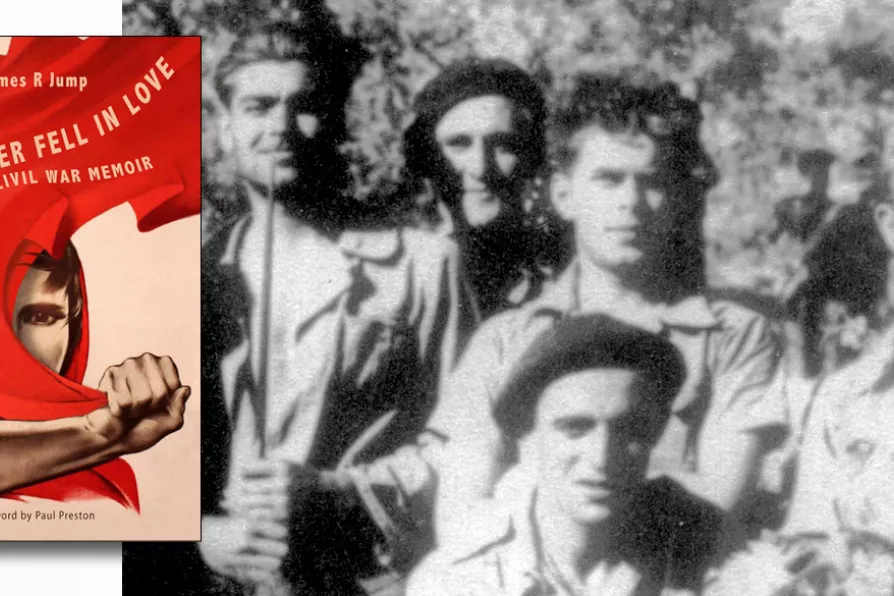The Bard reflects on sharing a bed, and why he wont go to Chelsea

 Jimmy Jump standing (second from right) with other British volunteers before the Battle of the Ebro in the summer of 1938
Jimmy Jump standing (second from right) with other British volunteers before the Battle of the Ebro in the summer of 1938
MANY books, films, documentaries and lectures have done a great job focusing on the dedication and sacrifice of the men and women who served in and cared for the international brigades, including the forensic work of academics dedicated to this complex and instructive period of history.
Yet for any newcomer to this bloody and romantic arena, what’s needed is a reporter, one who doesn’t indulge in purple prose but who nevertheless pens poetry which captures the heights and depths of human emotion.
Step forward Jimmy Jump who as a young man of 21 went to Spain to the very heat of battle. There he wrote — even while terrified — under fire, sipping wine in a village bar or seriously ill in a hospital bed.
Already in love, he was engaged to Spanish refugee Cayetana Lozano Diaz, who’d escaped her homeland as Generalissimo Franco took it in his stranglehold and this memoir has been edited by his son Jim Jump, also a journalist and current chair of the International Brigade Memorial Trust.
His father was a reporter on the Worthing Herald when he resolved to join the fight against fascism in November 1937 when the death toll was already terrifying, especially at the Battle of Jarama nine months earlier.

LYNNE WALSH reports from the Women’s Declaration International conference on feminist struggles from Britain to the Far East

Caroline Darian, daughter of Gisele Pelicot, took part in a conversation with Afua Hirsch at London’s Royal Geographical Society. LYNNE WALSH reports

This year’s Bristol Radical History Festival focused on the persistent threats of racism, xenophobia and, of course, our radical collective resistance to it across Ireland and Britain, reports LYNNE WALSH

LYNNE WALSH previews the Bristol Radical History Conference this weekend














